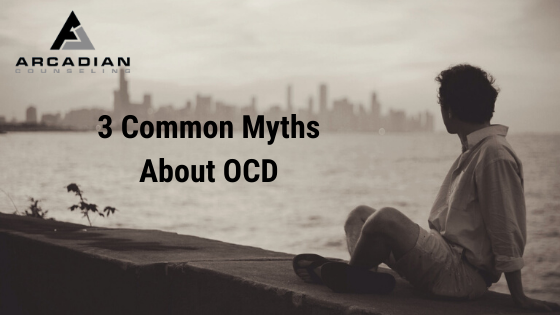It’s likely that no group of individuals with mental illness is as directly affected by the outbreak of COVID-19 as people living with obsessive-compulsive disorder (OCD). Individuals with OCD are experts at avoiding danger by engaging in compulsive behaviors. However, the sudden spike in anxiety is igniting existing obsessive fears of contamination in some people with OCD and further triggering harmful compulsive actions. Sadly, the coronavirus can become all they think about.
Obsessive Compulsive Disorder is a “mental health disorder that affects people of all ages and walks of life, and occurs when a person gets caught in a cycle of obsessions and compulsions”
The DSM (Diagnostic Statistical Manual for Mental Health Disorders) defines obsessions as “recurrent and persistent thoughts, urges, or images and cause marked anxiety or stress.” Compulsions are defined by, “repetitive behaviors or mental acts that the individual feels driven to perform in response to an obsession.” Typically, these compulsions are aimed at reducing stress or anxiety.
While the definition seems straightforward, a surprising number of people have misconceptions about the disorder. Here are the three most common things people get wrong about OCD:
OCD is Common
While term “OCD” has become so commonly used in today’s culture, the actual disorder is not. In fact, OCD affects only 1% of adults in the United States. The misconception lies in the fact that so many people (falsely) believe they have the disorder.
How many times of you heard a friend or coworker say, “oh my God I am so OCD when it comes to XYZ?” Odds are they are not. What they really mean to say is they are “very particular when it comes to XYZ.”
The reality is, people who suffer from Obsessive Compulsive Disorder don’t typically volunteer this information in passing with statements like, “I’m so OCD.” Why? Because shame, guilt, and even disgust are commons feelings experienced by individuals diagnosed with Obsessive Compulsive Disorder.
Individuals who struggle with OCD are well aware their compulsions or obsessions are irrational and unwarranted. However, they feel as though they have no control over them. In fact, they often feel controlled BY them! This awareness, combined with the feelings of hopelessness and helpless, contribute to these negative and self-shaming thoughts about themselves.
OCD is Reasonable
If Obsessive Compulsive Disorder were reasonable, it would not be a debilitating issue for the percentage of population it affects. It is reasonable to want to wash your hands, and wash them really well, after touching something dirty. Wanting clean hands is reasonable.
It’s also reasonable to want things on your desk arranged how you like them. And if someone accidentally knocks into your desk and disperses your cup of pens and pencils, it is perfectly reasonable to rearrange them to get them “just so.”
But people who have OCD have triggers that are totally unreasonable.
Reasonable trigger: Washing your hands diligently because you just used a gross public restroom. (We’re talking to you grocery store bathrooms!)
OCD trigger: Spending an hour or more during the day ensuring your vintage magazine collection is arranged by color because if just one of them is out of order, you’re unable to move forward with your day to day life.
OCD triggers are extremely powerful and emotional. Individuals who suffer from OCD develop rituals to make certain that other rituals have been carried out completely. This is why someone might insist they wash their hands 15 times. The washing ritual typically has nothing to do with having clean hands but rather is an effort to avoid tragedy and chaos.
Washing your hands because you want them clean is reasonable, but OCD triggers are not.
People Can “Get Over” OCD with a Little Willpower
Resisting OCD impulses is vastly different than resisting eating an entire bag of Doritos in one sitting. Just as it requires coping skills (not just willpower) to deal with addiction on a daily basis, it requires the same to live with, but not submit to the intrusive thoughts of OCD.
Individuals who struggle with OCD are fully aware their urges and obsessions are excessive and unwarranted, however feel helplessly controlled by them. Many of the clients of I’ve worked with refer to it as “a living hell.”
A therapist can help those afflicted with the disorder deal with their obsessions and healthy way so they don’t spend hours each day engaged unreasonable rituals. Additionally, studies and evidence have consistently demonstrated that medication is one of the most effective forms of treatment for OCD when combined with psychotherapy.
Are you struggling with OCD? If you need more resources and support, we can help. Contact us today for a free consultation.
James Killian, LPC is the Principal Therapist & Owner of Arcadian Counseling in New Haven, CT where they specialize in helping over-thinkers, high achievers, and perfectionists take control and move From Surviving to Thriving.



